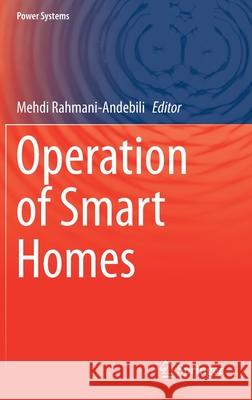Operation of Smart Homes » książka
topmenu
Operation of Smart Homes
ISBN-13: 9783030649142 / Angielski / Twarda / 2021 / 164 str.
Kategorie:
Kategorie BISAC:
Wydawca:
Springer
Seria wydawnicza:
Język:
Angielski
ISBN-13:
9783030649142
Rok wydania:
2021
Wydanie:
2021
Numer serii:
000239383
Ilość stron:
164
Waga:
0.42 kg
Wymiary:
23.39 x 15.6 x 1.12
Oprawa:
Twarda
Wolumenów:
01
Dodatkowe informacje:
Wydanie ilustrowane











